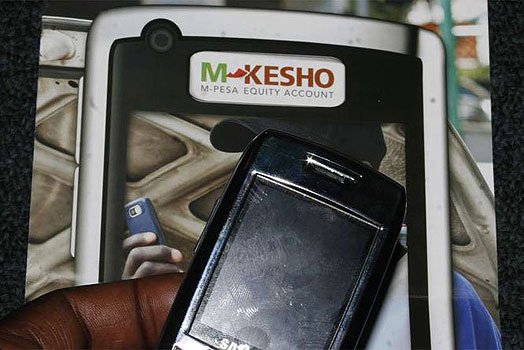IP Matters: Week 2
Hoswell Njuguna claimed he created Weka Usaidike, a concept of saving money on a mobile phone. He confidentially discussed this concept with Equity Bank, hoping to partner with the bank to develop the concept who then markets it to customers. The confidential information was contained in a proposal Mr Njuguna shared with Equity Bank. A number of meetings were held between August 2006 and August 2009.
About one year later, Safaricom—the mobile operator behind M-PESA—and Equity Bank launched M-KESHO. M-KESHO was launched as a co-branded financial-products suite that would ride on the wings of M-PESA, one of the most successful mobile-payment platforms in Africa. A savings account, M-KESHO is by Equity Bank but marketed as an M-PESA Equity account.
Mr Njuguna sues Equity Bank and Safaricom.
Mr Njuguna was alarmed. Alleging that Equity Bank and Safaricom unjustly profited from his Weka-Usaidike concept by using it to develop M-Kesho, he sued both companies in 2010. Mr Njuguna sued at the High Court in Kenya. His action was dismissed. He then appealed to the appellate court.
Equity Bank denies allegation, says it didn’t even touch the idea—”a mere write-up”.

According to an Equity Bank former director, Eric Karobia, Equity Bank first introduced an SMS-banking platform in 2005. And so Mr Njuguna’s mobile-banking concept was not new to the bank. He described Mr Njuguna’s concept as being basic and limited to scratch cards. He also pointed out that in any case Mr Njuguna’s concept was merely a write-up.
Safaricom also denies; says we know nothing about it.

On its part, Safaricom denied it knew anything about Mr Njuguna’s concept. As far as Sacricom was concerned, M-KESHO was developed as a mobile-banking service platform in partnership with Equity Bank.
After 7 years of legal battle against Equity Bank and Safaricom, Mr Njuguna lost his case 2 months ago.
Three Vital Points
- Mr Njuguna failed to protect his concept: Mr Njuguna claimed he was the author of original work, Weka Usaidike a concept copied by Equity Bank. In fact, he said he was issued a certificate of registration of his copyright 19 Nov November 2009. Since Mr Njuguna first shared confidential information about Weka Usaidike with Equity Bank in August 2006, it’s obvious Mr Njuguna failed to adequately protect himself from being robbed of his idea, if this was the case. Even without getting a copyright certificate—which is by the way not a necessity in copyright law–a simple, well-drafted Non Disclosure Agreement (NDA) could have protected Mr Njuguna from any likelihood of having his concept used by Equity Bank without permission.
- Ideas or concepts are not copyrightable. Copyright protects expressions, not ideas or concepts. If Mr Njuguna thought he got a copyright certificate to protect his concept or idea, and not just the expression of the concept or idea, he is mistaken. Whenever you write down a concept or idea, copyright automatically protects the literary expression on the medium the expression is fixed (electronic notebook, paper, etc). This does not protect the ideas behind the literary expression. And this is why Equity Bank’s position that Mr Njuguna’s concept was merely a write-up is a valid defense. For Mr Njuguna to have gotten protection at this mere writeup-stage, he should have at least gotten Equity Bank to sign an NDA to restrict the bank (with any of its tech partners) from developing the concept within a period of time.
- An idea or concept is worth more when developed into a product or service with user base, no matter how small. In 2007, Kenya had only 2.5 million bank accounts. The total population was 39 million at the time. By May 2010, bank-account holders rose to 8 million. Equity Bank had a market share of over 50% (4.5 million). Safaricom had 9.5 million M-PESA accounts. M-KESHO was introduced to add 3 million customers for a start. Today, Equity Bank has 9 million customer, half of this in Kenya. This is the power of mobile banking. If Mr Njuguna had developed his mobile-banking idea first, he might have increased his chances of closing a deal with Equity Bank, not selling a lawsuit and buying two unfavorable judgments.
Tech Entrepreneurs (Disclosing Party)
- Always consider using an NDA whenever you wish to disclose confidential information to any individuality or company about your business proposals. A tailored one is always best.
- Rather than excitedly sharing ideas, concepts, or “mere write-ups”, endeavour to build your ideas into a concrete product first. It takes time, and yes money too. But it’s worth it. Building your ideas will enable you have something concrete to hold on to, making it difficult for your prospective partner to run away with them.
- Never put your business and reputation at unnecessary risk by receiving confidential information without having definite measures on how you treat them. If the tech entrepreneur has no NDA, you have no excuse not to. None. You are a business. And if you are a bank like Equity Bank, equity holders won’t be smiling. Always have an NDA. And if you can’t keep your promises, never make them.
Software Company or Partner Company (Third Parties)
- Before going into that partnership on a project as Safaricom has done above, ensure your partner is coming to the table clean. In your partnership agreement, indemnify your business from any third-party actions that directly or indirectly affects the purpose of partnership. Right in the agreement, Safaricom can send the Njugunas to the Safari desert, while it cools off with Equity Bank at Safaris in Mombasa.


